COVID-19 has meant reduced business for many entrepreneurs in the form of modified hours, fewer customers and in many cases, closures. Black entrepreneurs have been especially impacted by the pandemic: Its first five months, biz ownership for this group fell at a higher rate. Meanwhile, social unrest following the killings of Black people like George Floyd by police saw local businesses weathering additional damage, and entrepreneurs of color are dealing with mental anguish of seeing people who look like them lose their lives.
Black and Latinx people represent 44% and 15% of Philadelphia’s population, respectively, but own only 6% and 4% of employer firms in the city, plus 30% and 13% of non-employer firms. Boosting these entrepreneurs has been a focus of local efforts in recent years, both from the City of Philadelphia and other institutions, and more grassroots efforts. Still, we hear often in our reporting that opportunities for funding, networks and other resources are harder to come by — both locally and nationally — if you’re a person of color.
Over the last several weeks of 2020, Technical.ly profiled 10 Black and Latinx entrepreneurs about the challenges they’ve faced in growing their businesses in Philadelphia, as well as what resources they have used to support that growth, and what more is needed. The series asked: What’s working in supporting Black and Latinx founders? What isn’t?
Read the seriesThemes emerged from these interviews — some related to this especially challenging past year, and some more systemic. Finding access to capital could be consistently difficult, they said. Some founders pondered how they could break through to bigger growth after initial success. For many, simply staying solvent amid a pandemic had become their main challenge. And dealing with the gravity of a social uprising that had been years in the making provided an additional layer of duress.
Hearing the entrepreneurs’ stories via phone and video call while the coronavirus raged provided this reporter with a surreal gateway into the lives of people already used to working on their own terms, and now thrust into new circumstances presenting a sort of existential crisis. Conversations about their professional journeys sometimes got sentimental and even dark when discussing systemic inequities that might have precluded them from success.
Still, each story was powerful and conveyed the resilience of these entrepreneurs. Here’s what they said is needed to make success more accessible to more people.
A clearinghouse of easily accessible resources
Marc Coleman has seen success since launching dev agency The Tactile Group in 2004 that included landing a contract with Philadelphia International Airport. His Center City business has been able to grow with the help of a number of local biz-building programs, including The Enterprise Center and PIDC’s Your Outsourced CFO, so he believes resources for Black and Latinx entrepreneurs to succeed already exist — they just aren’t visible or accessible enough to everyone who needs them. Organizations offering those resources should work to meet Black and brown entrepreneurs where they’re at.
“If there were a single place Black and brown founders could go for this information, the nonprofits [offering resources would] want to own that story,” he said. “These things would have a much longer reach if they were coordinated and share some of the glory and burden.”

The Tactile Group founder Marc Coleman. (Courtesy photo)
Harriett’s Bookshop owner Jeannine Cook launched her Fishtown bookstore in early 2020, just before the pandemic hit. Finding ways to sell books outside during a time where Black people and allies needed a tangible sense of community was a challenge that she worked expeditiously to meet.
One of the issues Cook has with potential funders seeking to help Black and Latinx businesses is the number of questions that come with applications. The time required to respond to inquires and compile the information needed takes away from the time that entrepreneurs like her have to invest in their businesses.
“Make your process more streamlined and easy to access,” she said. “We’re doing things in the old ways.”

Harriet’s Bookshop founder Jeannine Cook. (Courtesy photo)
Earlier institutional support
Having access to local Chambers of Commerce and other professional organizations in the earlier stages of business planning can be a major asset for Black and Latinx entrepreneurs striving for success.
Venezuelan eatery Puyero cofounder has developed a local following and adapted to the pandemic. Cofounder Gilberto Arends said he’s grateful for the support the Queen Village shop has received from the Greater Philadelphia Hispanic Chamber of Commerce in recent months, including in the form of Dine Latino Restaurant Week held in October. However, he wishes that he knew about the Chamber when his family was still in its planning stages — an awareness issue.
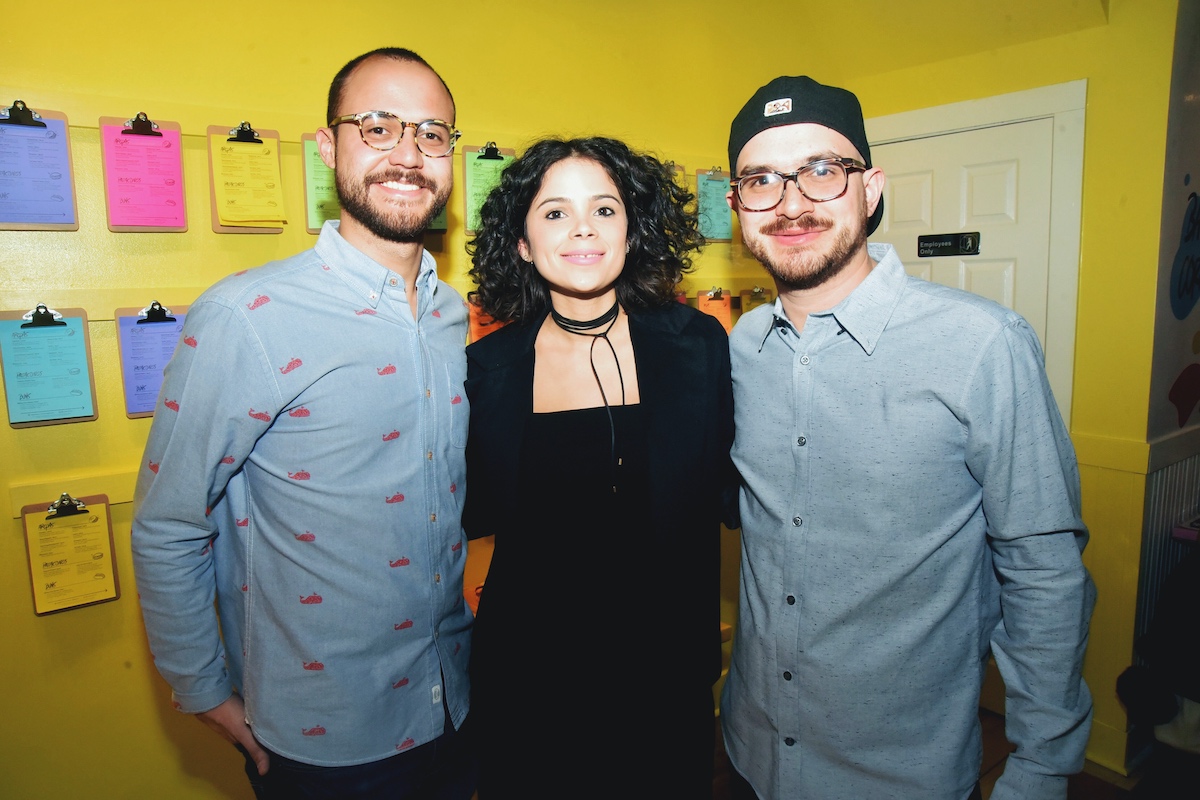
Puyero owners Simon, Manuela Villasmil and Gilberto Arends. (Courtesy photo)
Edward Garcia and his partner Jeannie Wong own Queen and Rook Gaming Cafe launched their Queen Village business in September 2019 by sidestepping institutional investors and reaching out to friends and family for what became their first round of investment. Garcia agrees that having relationships with organizations like the Hispanic Chamber earlier on could be a major benefit to Latinx businesses looking for ways to access startup capital, for instance.
“Once you blow up, everyone is lining up to mentor you,” he said. “But it’s before you blow up that you need help in getting to the next step. If you have one location, how to do you get to the next? If you’re working from home, how do you get to the second year?”
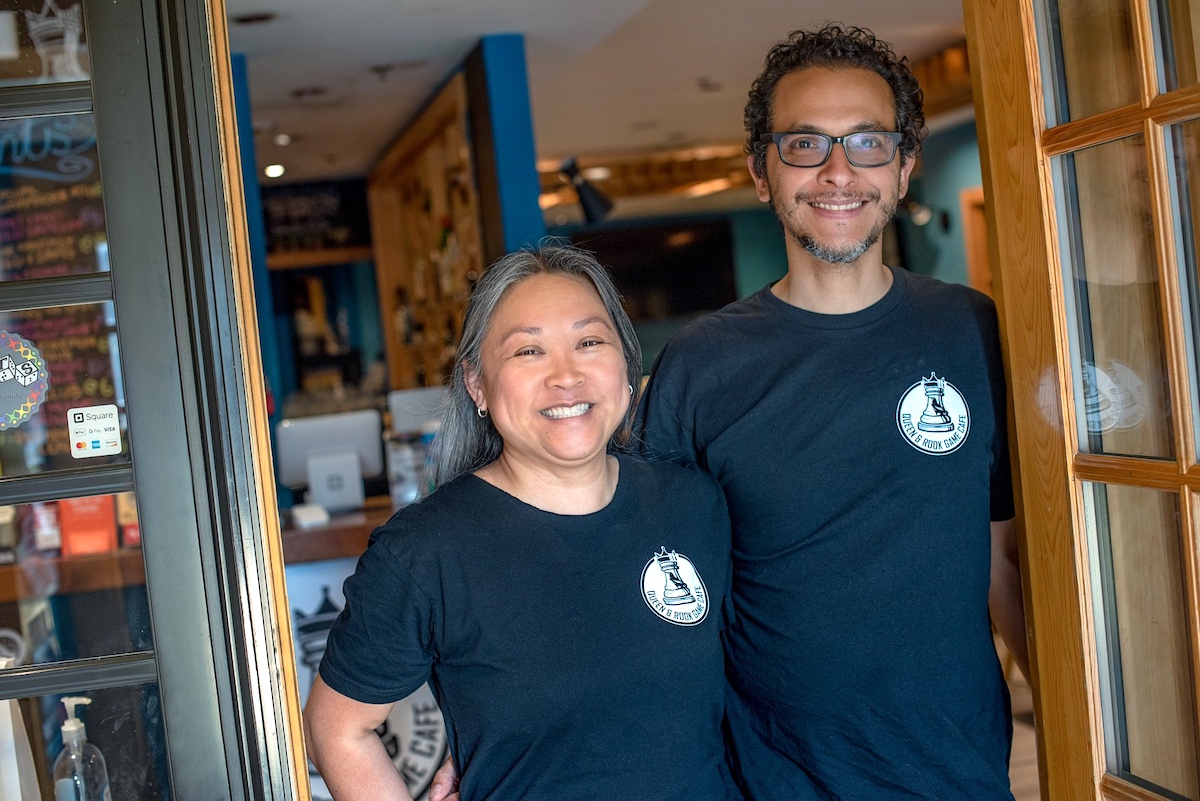
Queen & Rook Board Game Cafe owners Jeannie Wong and Edward Garcia. (Photo by South Street Headhouse District)
Better representation among business leaders
The importance of diversity among decision makers surfaced often in conversations with the entrepreneurs.
Ariell Johnson’s Amalgam Comics & Coffeehouse in East Kensington has received acclaim from the East Coast comic community and supporters of Black-owned businesses over the past five years. In several experiences pitching loan committees and other stakeholders on her supporting her business, Johnson said noticed that they are rarely as diverse as the entrepreneurs they aim to serve. With better representation, she believes more business owners could thrive.
“I always think it comes down to who is in the room,” she said. “If your organization’s mission is to help women, people of color, Black or queer people, those people need to be present in the organization. I had to pitch to loan committees and it’s not lost on me that the majority of the time the room I’m pitching to is 95% white and 75% male.”

Ariell Johnson in Amalgam Comics & Coffeehouse. (Courtesy photo)
After exiting his first startup GSI Health, in 2016, LeRoy Jones has formed EREflow, which has a focus on guiding other entrepreneurs in the early stages of their professional journeys. During his time at GSI Health, Jones had success in raising $5 million over several rounds of funding, including from Ben Franklin Technology Partners and Rittenhouse Ventures. Getting his company to be seen as more than a minority-owned business was often a challenge, however.
“[When] trying to raise money for company, I didn’t see anyone that looked like me on either side of the table,” he said. “We had such a hard time getting access to capital, even though we had a good track record, customers and leadership.”
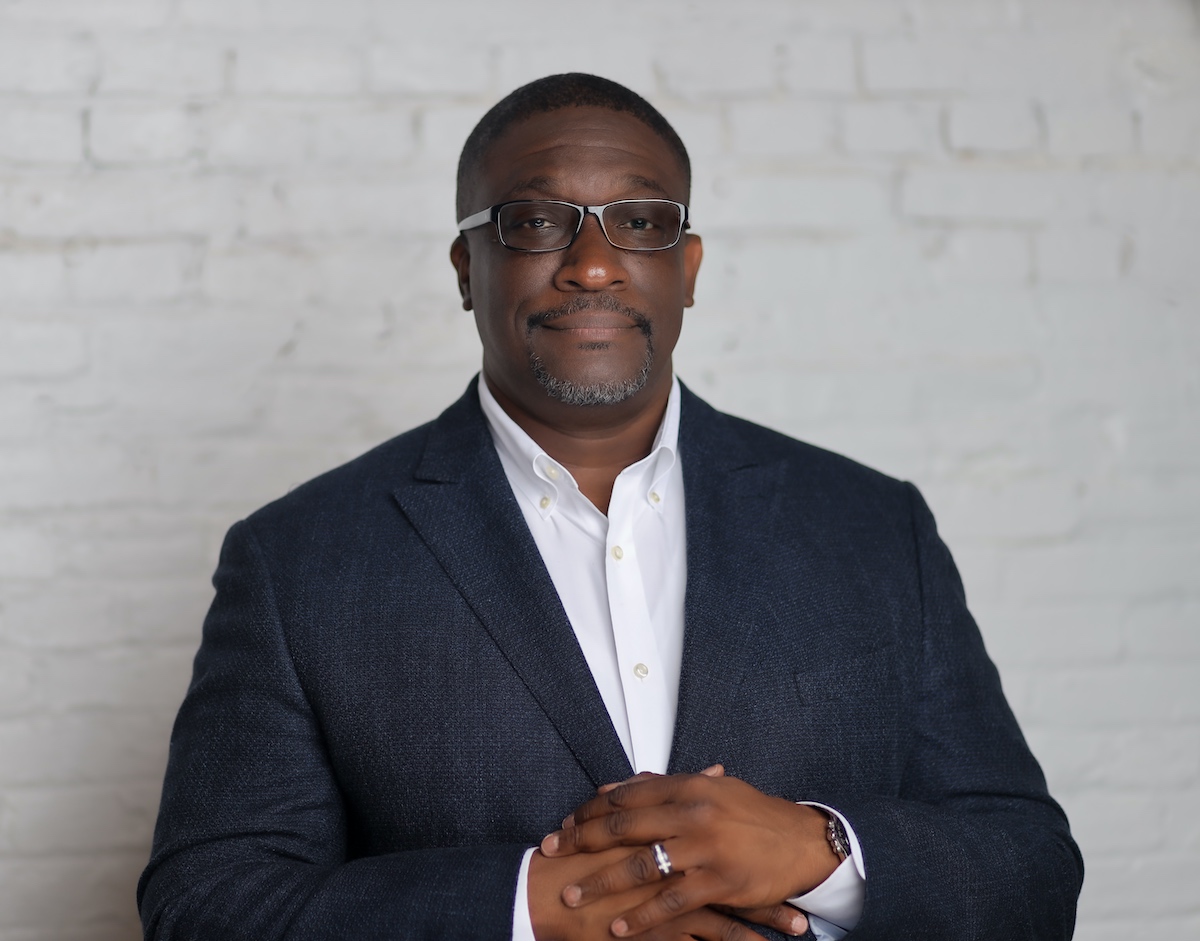
EREflow founder LeRoy Jones. (Courtesy photo)
And Garcia found getting a lease for Queen and Rook to be a difficult experience. Over two years, he and Wong went through four realtors to see 10 different spaces. But each time, Garcia felt that property owners wanted a larger deposit than they would have asked of a white business owner; his MBA and high annual salary and the couple’s good credit couldn’t prevent potential landlords from ignoring that they were not white, he said.
Mentorship from experienced pros
Several entrepreneurs mentioned how helpful it was to learn from others who had launched businesses in tough circumstances.
Kristal Sotomayor is one of the three founders of ¡Presente! Media!, a collective working to empower creatives during a time in which many have lost work and are looking for more opportunities. As an independent filmmaker, they have seen firsthand how difficult it can be make steps forward in their career, and by uniting with other creatives of color, see the potential to have greater success. Mentorship from independent filmmaker and educator Nadine Patterson helped Sotomayor succeed in their field by advocating for Sotomayor’s growth and fundraising efforts.
“It’s critical because business is about relationships,” Patterson said. “You cannot move forward in your career unless you have connections with people who are established in an industry. It’s virtually impossible. You need to see people in the industry who look like you and look like they’re from your community to give you the fortitude to persevere.”

Kristal Sotomayor. (Photo by Dan Papa)
Napoleon Suarez is the founder of Fishbox, a package delivery business based in South Philadelphia. He benefited early on from mentorship from his former boss, Seer Interactive’s Wil Reynolds.
But he’s also faced financial challenges over the business’ life cycle that he partly attributes to a lack of guidance. The entrepreneur believe small biz-supporting organizations that help Black and Latinx founders could play a role here: By better understanding how to gain new customers, his business could have the tools to succeed in the long term.
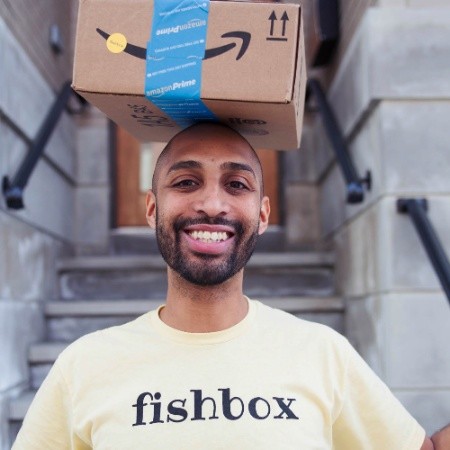
Napoleón Suarez. (Photo via LinkedIn)
Emeka Oguh of financial wellness fintech company PeopleJoy, also believes mentorship can prepare Black and brown founders for the peaks and valleys that come with entrepreneurship. Oguh has participated in the Mentor Connect program from PACT and Ben Franklin Technology Partners, which brings together founders with more seasoned entrepreneurs as coaches.
“Mentors come in different ways,” he said. “Some you have for life, some you have for a day. Anyone that can give you a new perspective is a mentor. This is agnostic of race, but we need more mentors. This is a super lonely journey and it’s always great to talk to current CEOs going through it, but also [have] a safe zone of being able to talk to somebody going through it who isn’t an investor or on your board.”

PeopleJoy founder Emeka Oguh. (Courtesy photo)
Support for capacity building
During a time in which COVID-19 has infected over 100,000 Philadelphians, Donna Allie’s Team Clean has maintained her business by using state-of-the-art cleaning equipment to sanitize spaces ranging from City Hall to the movie set of a Netflix production filming in the area. However, even as the founder of a business that has existed for decades now and has a $17 million three-year average in sales, she sees white-owned companies growing while she and her peers stay stuck, unable to take advantage of larger contracts. A program to help entrepreneurs like her learn how to scale, and the connections to do it, could help.
“I feel so bad about the struggle we have to go through,” she said. “I feel other business owners’ pain. We’re at a three-year average of $17 million in sales. We can’t get out of that average and go to the next level. It’s not only me — I hear this from other friends in business. Here in Philadelphia we want to put capital into building capacity.”
Allie believes organizations could also support Black business owners by providing information on maximizing their financial resources after making profits. Understanding how to invest and better manager cash flow is something she thinks could help many Black business owners succeed.
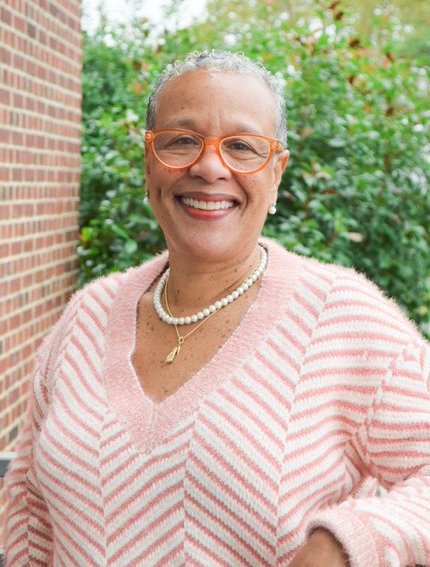
Team Clean owner Donna L. Allie. (Courtesy photo by Alyssa Andres)
And for all the talk of Philly as a fledgling tech economy, Jones pointed out that a lack of good incentives for business owners to launch here as well as high taxes don’t make it easy for the city’s economic growth.
Even so, Jones said, “I was able to be successful despite that. You can’t be a victim. You just keep going, no matter what.”
What’s next?
Some of the challenges could apply to any entrepreneur. But many speak to the particular experience of Black and Latinx founders who must navigate racial inequities in their personal as well as professional lives.
Following George Floyd’s killing, Coleman said, he had to explain to his staff that he might be mentally checked out, because Floyd could have been him or any other Black person in America. Johnson has dealt with depression because of this trauma at the same time she’s laboring to keep her business open during the pandemic.
Juggling a pandemic and the mental strain of seeing people who look like you killed could hamper any savvy entrepreneur. But from this reporting, it’s clear that Black and Latinx entrepreneurs are finding ways do more with less. It could be far easier if they had more resources at their disposal. As people of different backgrounds plan for economic recovery in 2021 and life after the pandemic, it is paramount to Philadelphia’s economic success that Black and Latinx entrepreneurs receive more support in their endeavors.
Michael Butler is a 2020-2022 corps member for Report for America, an initiative of The Groundtruth Project that pairs young journalists with local newsrooms. This position is supported by the Lenfest Institute for Journalism.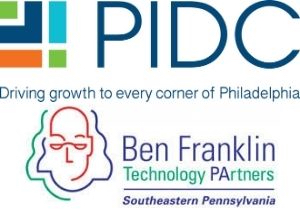
This article appears in a series on Black and Latinx entrepreneurship in Philadelphia and is underwritten by PIDC and Ben Franklin Technology Partners. It was independently reported and not reviewed by these partners before publication.
Before you go...
Please consider supporting Technical.ly to keep our independent journalism strong. Unlike most business-focused media outlets, we don’t have a paywall. Instead, we count on your personal and organizational support.
3 ways to support our work:- Contribute to the Journalism Fund. Charitable giving ensures our information remains free and accessible for residents to discover workforce programs and entrepreneurship pathways. This includes philanthropic grants and individual tax-deductible donations from readers like you.
- Use our Preferred Partners. Our directory of vetted providers offers high-quality recommendations for services our readers need, and each referral supports our journalism.
- Use our services. If you need entrepreneurs and tech leaders to buy your services, are seeking technologists to hire or want more professionals to know about your ecosystem, Technical.ly has the biggest and most engaged audience in the mid-Atlantic. We help companies tell their stories and answer big questions to meet and serve our community.
Join our growing Slack community
Join 5,000 tech professionals and entrepreneurs in our community Slack today!

The person charged in the UnitedHealthcare CEO shooting had a ton of tech connections

From rejection to innovation: How I built a tool to beat AI hiring algorithms at their own game

Where are the country’s most vibrant tech and startup communities?



